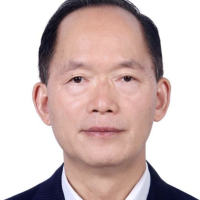No Water, No Food – Glacier Loss Threats to US and Chinese Agriculture 7/13
Snow and glaciers in the Hindu Kush Himalayas and the Tibetan Plateau contain the largest volume of fresh water outside of Earth's polar ice sheets. Wharton Club members & guests are invited!
Snow and glaciers in the Hindu Kush Himalayas and the Tibetan Plateau contain the largest volume of fresh water outside of Earth's polar ice sheets, leading hydrologists to dub this region the Third Pole. Global warming is accelerating glacial melt in this region, threatening water, food security and ecosystems, and the lives of hundreds of millions across Asia.
For 40 years, elite glacier scientists Lonnie and Ellen Thompson (Ohio State University) and Tandong Yao (Institute of Tibetan Plateau Research) have been working together in the Third Pole. They were some of the first scientists to sound the alarm on our changing climate and what it meant for the world’s glaciers. In 2009, together with Volker Mosbrugger, they established the Third Pole Environment (TPE), an international program for the interdisciplinary study of water, ice, air, ecology, and humankind in the Third Pole region and beyond. Following the establishment of the first TPE center in China, the US Center opened at the Ohio State University in 2016, the first outside the Third Pole Region.
The panelists, who have climbed countless mountains together, will share their experience studying climate impacts in the Third Pole and discuss the glacier-food nexus in the United States and China. The nearly $14 billion of fruit, grain, potatoes, and hops grown in Washington, Oregon and Idaho are all irrigated by melt water from glaciers. The glacier-fed cotton and grain fields of northwest China are the most vulnerable in the face of climate change. Maintaining or expanding crops in these regions may be unsustainable with the loss of glaciers driving water scarcity.
This meeting is part of the China Environment Forum’s Cool Agriculture project investigating common food and climate challenges in the US and China.
MODERATOR
Jennifer L. Turner
Director, China Environment Forum & Manager, Global Choke Point Initiative
PANELISTS

Lonnie Thompson
Distinguished University Professor in the School of Earth Sciences and a Research Scientist in the Byrd Polar Research Center at the Ohio State University

Ellen Mosely Thompson
Distinguished University Professor, Department of Geography; Senior Research Scientist, Byrd Polar and Climate Research Center, Ohio State University

Tandong Yao
Director, Institute of Tibetan Plateau Research in Beijing
HOSTED BY
CHINA ENVIRONMENT FORUM
Since 1997, the China Environment Forum's mission has been to forge U.S.-China cooperation on energy, environment, and sustainable development challenges. We play a unique nonpartisan role in creating multi-stakeholder dialogues around these issues. Read more
POLAR INSTITUTE
Since its inception in 2017, the Polar Institute has become a premier forum for discussion and policy analysis of Arctic and Antarctic issues, and is known in Washington, DC and elsewhere as the Arctic Public Square. The Institute holistically studies the central policy issues facing these regions—with an emphasis on Arctic governance, climate change, economic development, scientific research, security, and Indigenous communities—and communicates trusted analysis to policymakers and other stakeholders. Read more
ENVIRONMENTAL CHANGE AND SECURITY PROGRAM
The Environmental Change and Security Program (ECSP) explores the connections between environmental change, health, and population dynamics and their links to conflict, human insecurity, and foreign policy. Read more
KISSINGER INSTITUTE ON CHINA AND THE UNITED STATES
The Kissinger Institute works to ensure that China policy serves American long-term interests and is founded in understanding of historical and cultural factors in bilateral relations and in accurate assessment of the aspirations of China’s government and people.
Virtual Event Instructions:
Click here to reserve your place(s)
for the event!






